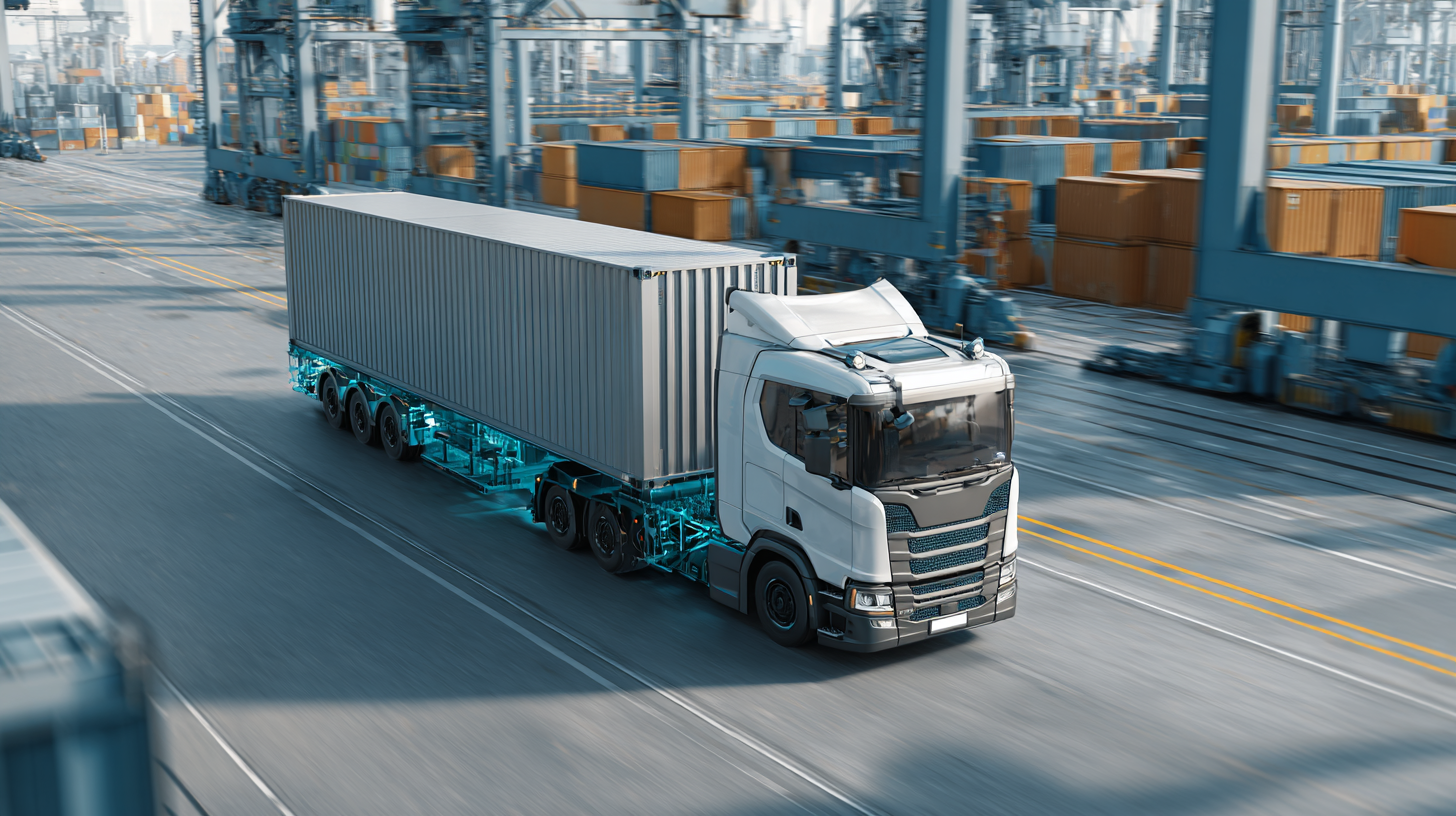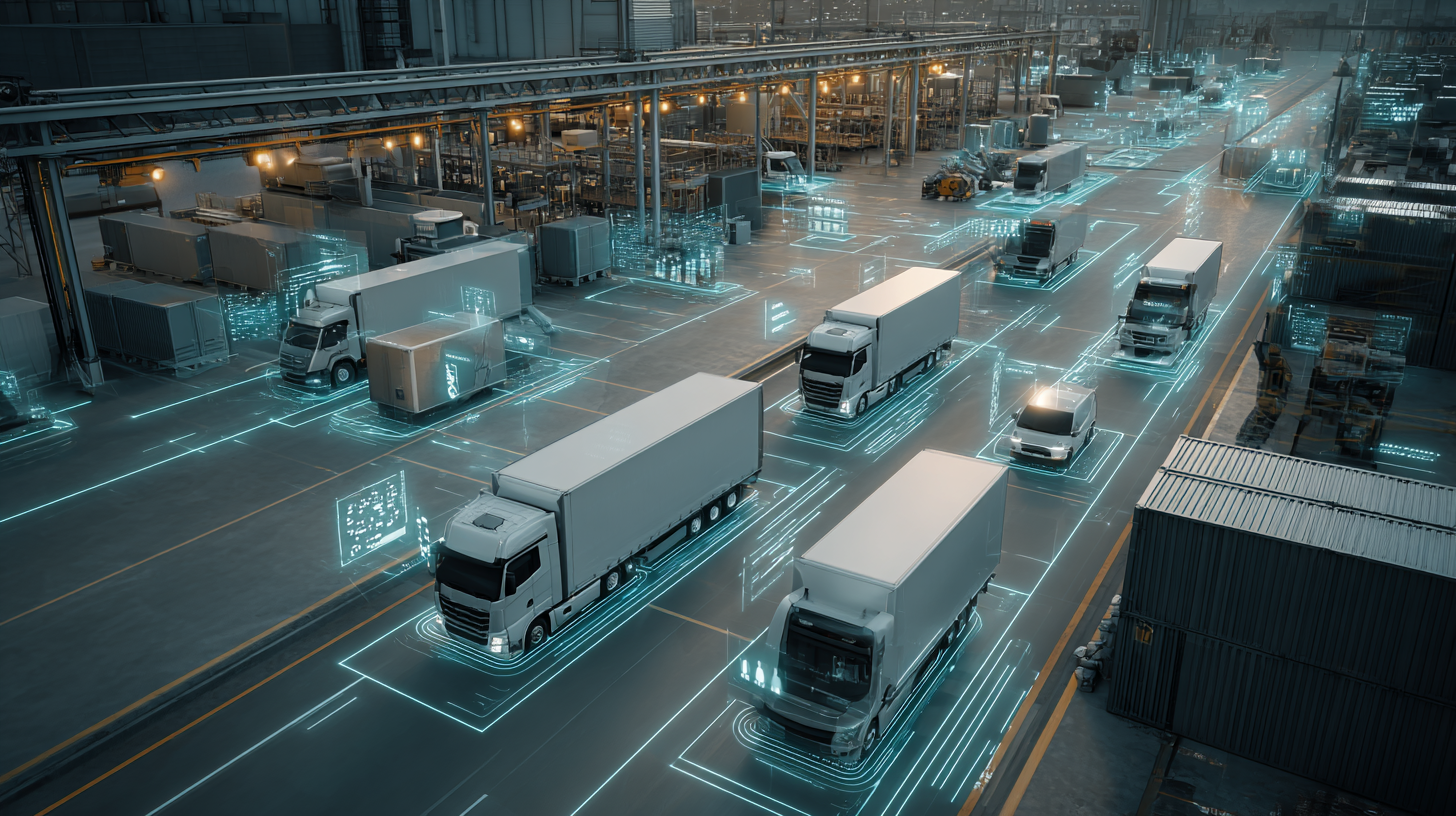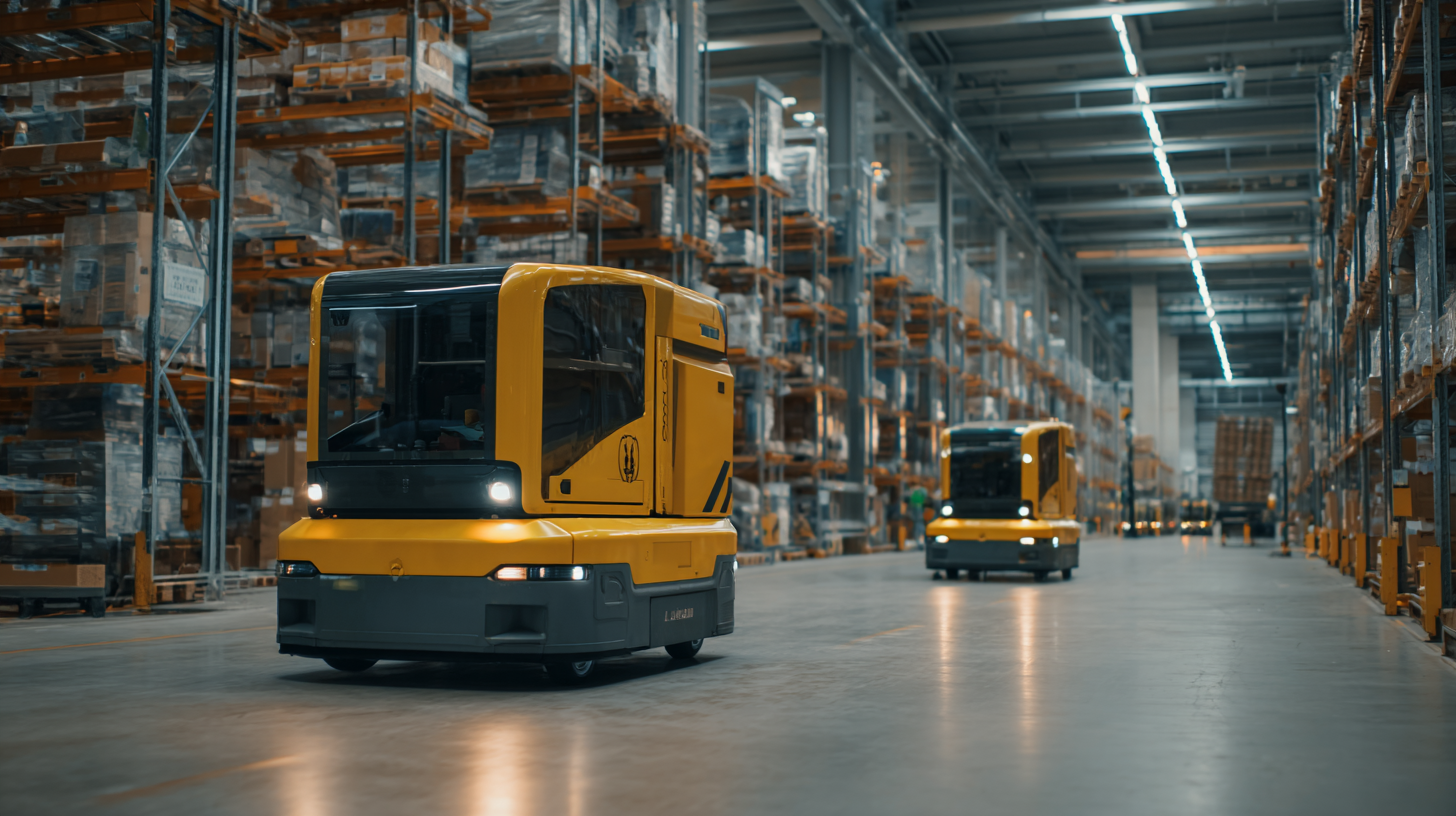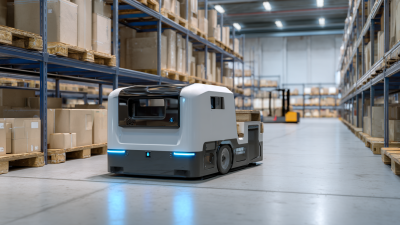Unlocking the Future of Autonomous Logistics How Technology is Redefining Supply Chain Management
In today's rapidly evolving technological landscape, the concept of autonomous logistics is poised to revolutionize supply chain management as we know it. As businesses seek to enhance efficiency, reduce costs, and streamline operations, automation technologies—from artificial intelligence to robotics—are becoming integral components of logistics strategies. This transformative shift not only improves the accuracy and speed of operations but also enables companies to adapt swiftly to market demands and consumer expectations.

In this "How to" guide, we will explore practical strategies for leveraging autonomous logistics technologies, examining the tools and processes that can unlock new avenues for growth and innovation in supply chain management. By embracing these advancements, organizations can position themselves at the forefront of a logistics revolution, ultimately leading to a more resilient and responsive supply chain ecosystem.
Embracing Robotics: The Role of Autonomous Vehicles in Modern Supply Chains
The advent of autonomous vehicles represents a transformative shift in supply chain management, as logistics operations increasingly embrace robotics to enhance efficiency and reduce costs. These driverless systems can navigate complex environments, allowing companies to streamline the movement of goods from warehouses to distribution centers with unprecedented precision. With advanced navigation technologies, such as LIDAR and computer vision, autonomous vehicles can adapt to real-time changes, minimizing delays and optimizing delivery routes.
Moreover, the implementation of autonomous vehicles in logistics is reshaping workforce dynamics. By automating transport tasks, companies can reallocate human resources to focus on strategic roles that require critical thinking and problem-solving skills. This shift not only increases operational efficiency but also drives innovation in supply chain strategies. As businesses continue to adopt these technologies, the blend of robotics and human expertise will create a more agile and responsive supply chain that can meet the evolving demands of the market.
Integrating AI and Machine Learning for Predictive Logistics Optimization
The integration of AI and machine learning into supply chain management has revolutionized the logistics landscape, offering unprecedented predictive capabilities. By analyzing vast amounts of data, these technologies can forecast demand trends, optimize inventory levels, and streamline transportation routes. This predictive approach not only enhances efficiency but also minimizes costs and improves service delivery. Companies can now anticipate customer needs proactively, making informed decisions that significantly reduce lead times and improve overall supply chain agility.
Tips for Implementation:
- Start by collecting and analyzing historical data to understand your supply chain patterns. This data forms the foundation for developing accurate predictive models.
- Invest in robust machine learning tools that can continuously learn and adapt based on new data inputs. This ensures your logistical strategies evolve with changing market conditions.
- Collaborate with tech partners who specialize in AI solutions tailored for logistics. Their expertise can help in scaling your predictive capabilities effectively.
As a result, businesses that adopt such advanced technologies can maintain a competitive edge, staying ahead in a rapidly changing market by leveraging insights that drive smarter logistics decisions.
Leveraging IoT for Real-Time Inventory Tracking and Management
The rise of the Internet of Things (IoT) is revolutionizing supply chain management through advanced real-time inventory tracking and management solutions. As businesses strive for efficiency amid global disruptions, labor shortages, and delivery pressures, leveraging IoT technology is becoming essential. It allows companies to enhance accuracy in asset tracking, optimize inventory levels, and streamline operations across various sectors such as retail, manufacturing, and logistics.
The asset tracking market is rapidly expanding, with a significant component being the implementation of hardware and software solutions. Technologies like RFID, GPS, and barcode scanning play a critical role in this growth. The global demand for automated warehouse management systems is expected to soar, as these technologies not only reduce operational costs but also increase supply chain responsiveness. By 2032, the IoT in warehouse management market is projected to witness substantial growth, allowing businesses to thrive in an increasingly complex supply chain landscape.

Enhancing Last-Mile Delivery with Drone Technology: Opportunities and Challenges
The rise of drone technology is transforming last-mile delivery, offering unprecedented opportunities for efficiency and speed. Drones can navigate complex urban landscapes, bypassing traffic congestion and reducing delivery times significantly. With the ability to carry lightweight packages directly to recipients' doorsteps, they can optimize the supply chain by lowering transportation costs and enhancing customer satisfaction. Companies that adopt drone delivery can gain a competitive edge in a rapidly evolving market.

However, the integration of drones into logistics is not without its challenges. Regulatory hurdles pose significant obstacles, as airspace management and safety regulations are still developing to accommodate this technology. Additionally, concerns about privacy and noise pollution may deter public acceptance. Companies must also invest in the necessary infrastructure and technology to support drone operations, ensuring they have robust systems for navigation, tracking, and customer interaction to maximize efficiency and reliability. Balancing these opportunities and challenges will be crucial as businesses look to redefine last-mile delivery through innovative drone solutions.
Data-Driven Decision Making: The Impact of Big Data on Supply Chain Efficiency
In the realm of supply chain management, the advent of big data has revolutionized the way decisions are made. By harnessing vast amounts of data generated from various stages of the supply chain, companies can derive deep insights that drive efficiency and effectiveness. Data-driven decision-making allows organizations to forecast demand more accurately, optimize inventory levels, and enhance logistics planning, thereby minimizing costs and reducing delivery times.
Moreover, the integration of big data analytics in supply chain operations enables real-time visibility into processes. Companies can track shipments, monitor supplier performance, and identify potential disruptions before they escalate. This proactive approach not only improves operational efficiency but also enhances customer satisfaction through timely deliveries and reliable service. As technology continues to evolve, the reliance on data for informed decision-making will become increasingly critical in ensuring the competitiveness and sustainability of supply chains in a rapidly changing market landscape.
Related Posts
-

Maximizing Efficiency with Logistics Robotics A Comprehensive How to Guide
-

How to Maximize Efficiency with AMR Robots: Insights from the 2023 Logistics Automation Report
-

Exploring the Future of Work with Think Robotics Innovations
-

Rethinking Robots: How Innovative Technology is Shaping Our Future Workspaces
-

Exploring the Future: How Robotics and Automation Transform Everyday Life
-

Revolutionizing Research Efficiency through Lab Robotics and Automated Workflows in Life Sciences